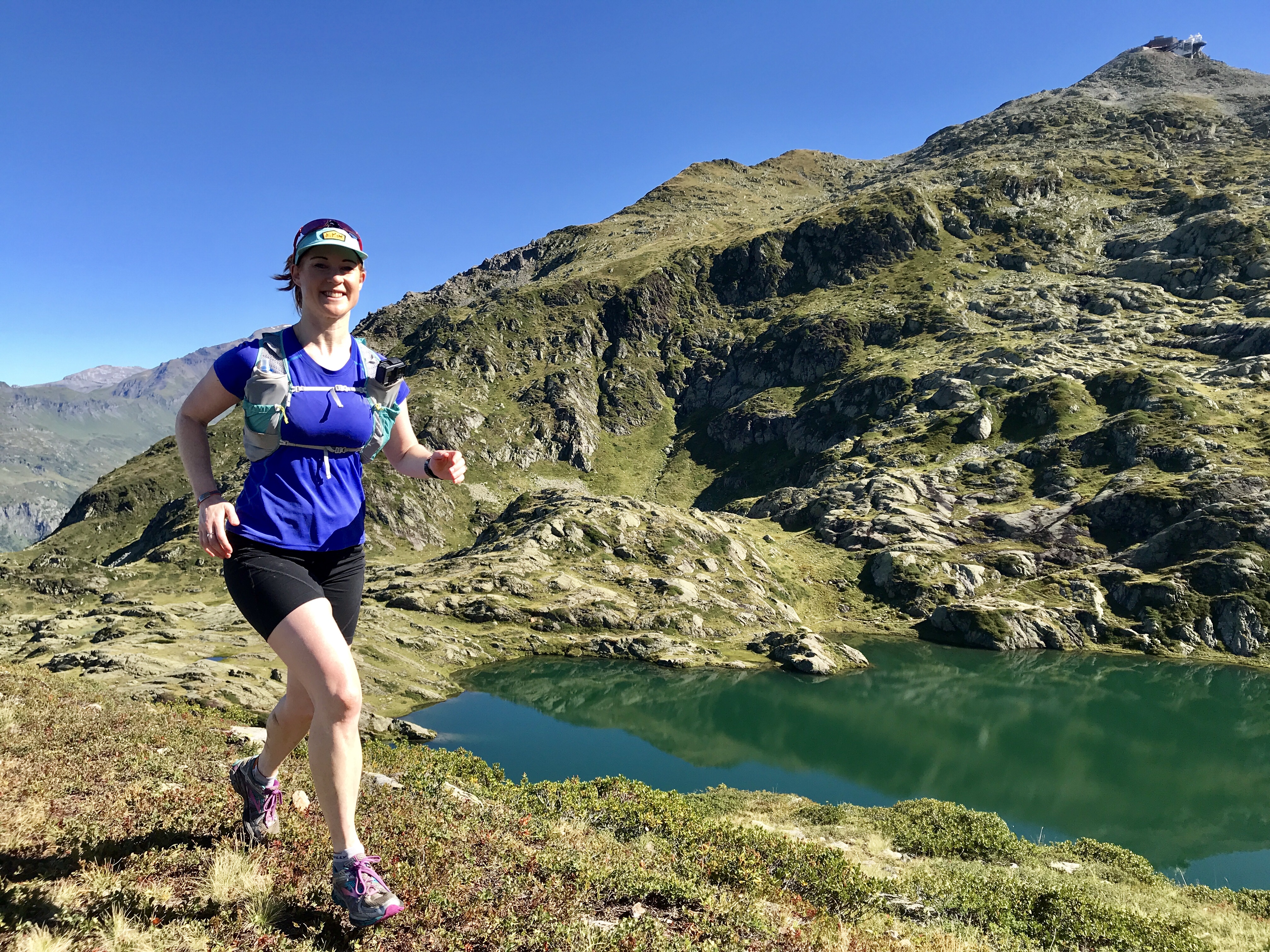Strava vs Runkeeper: which running app has the competitive advantage?
We pit Strava vs Runkeeper to find out which of the apps will suit different types of runners
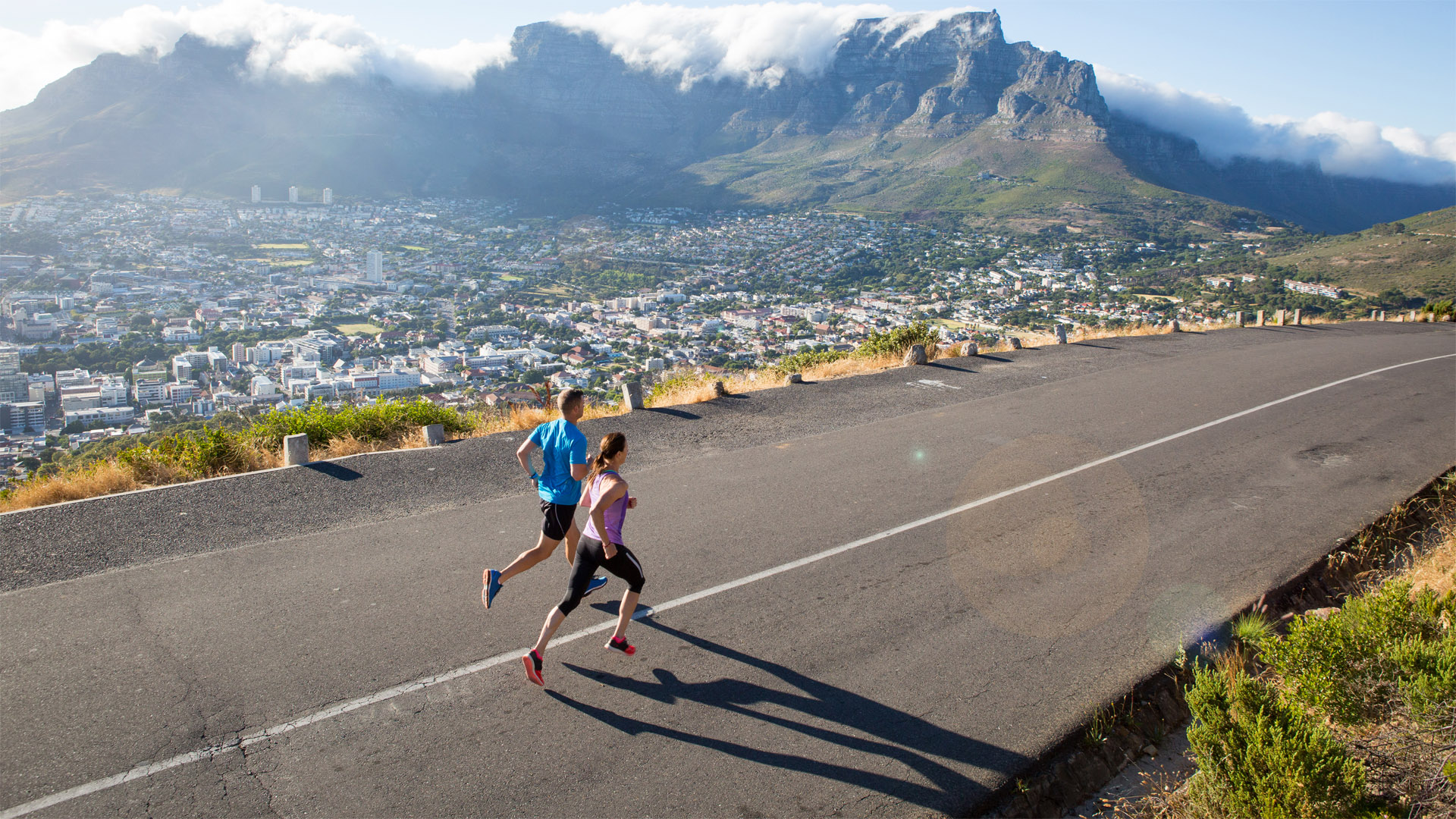
On your marks. It's Strava vs Runkeeper! Go! The race is on between the two most well known and well used running apps. We've pitted them up against each other to see which crosses the finish line first and which is left faltering at the starting blocks. Will Strava strive for victory, or is Runkeeper actually a keeper?
Let's get straight into it. Both apps are free at the basic level, with a premium subscription to unlock more in-depth features. Strava is most famous for being the social app – Facebook for runners, if you will – with the phrase 'if it’s not on Strava it didn’t happen' keeping some users fixated on recording every time they lace up their trail running shoes.
Runkeeper is more goal-orientated and can recommend challenges and training plans to less experienced runners, offering guidance and encouragement in partnership with Asics to achieve those aims.
Below, we put Strava and Runkeeper through their paces to find out which is best for you.
Today's best deals
Today's best deals on our favourite running watch, Garmin's Forerunner 955:
Meet the expert
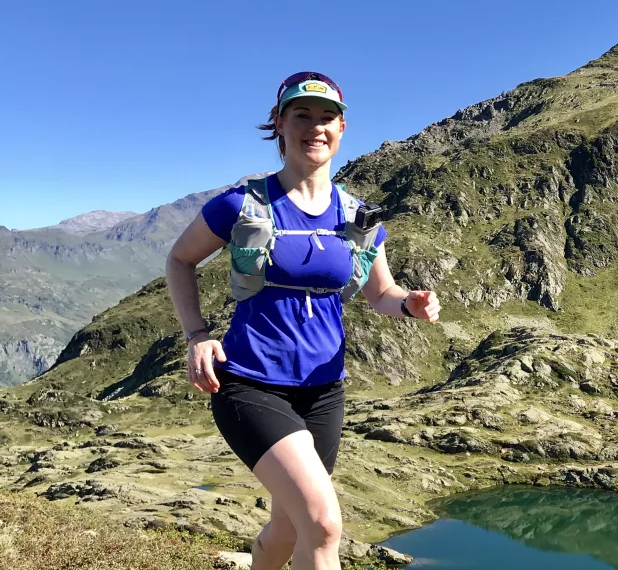
Claire is deeply passionate about running. The former editor of Trail Running magazine and curator of her YouTube channel, Wild Ginger Running, she revels in conquering trails and taking on ultras. As something of a running tech expert, there are few people better placed to consider this heavyweight bout.
Strava
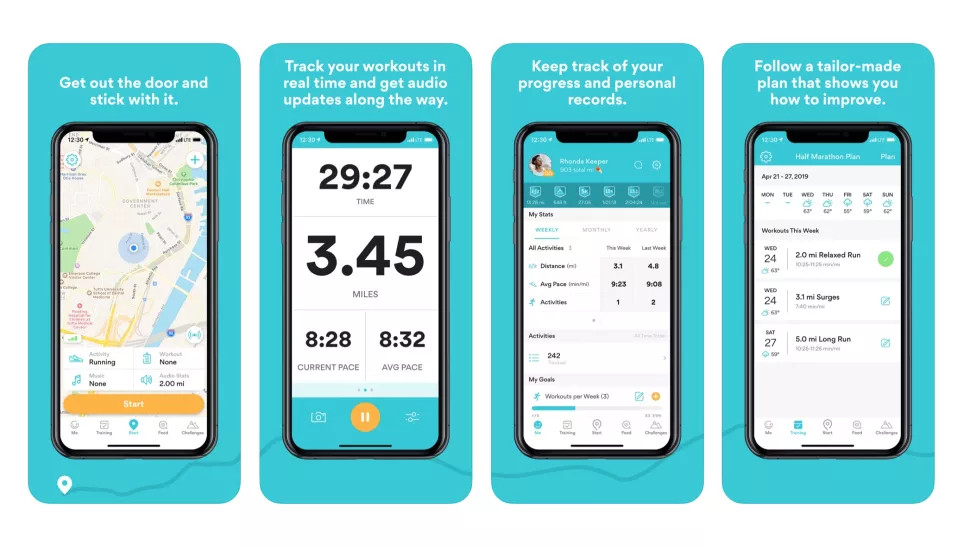
Strava
- Strava is great for logging every run you do and logging your stats
- You can use either the app or a GPS watch to track your activities
- You can also add photos to your runs, which are then shared on the main feed
- Strava Beacon allows you to share real-time location with close contacts
If you like your stats, logging every run (or any exercise) and connecting with likeminded runners, Strava is a fantastic app for you. The basic premise of the app is that you use either the app or your best GPS watch to record you run, then Strava stores it in a timeline a bit like Facebook, and your weekly mileage is shown on a satisfying (or not!) graph. You can even add your running shoes and track their mileage, so that you know when to replace them.
Accompanying each run is a map of where you’ve been (don’t worry, you can hide your home address) and you can add photos to each run if you like. You can also use Strava Beacon to share your real-time location with up to three friends and family members via a message with a link to view your position on a map in their browser.
All the latest inspiration, tips and guides to help you plan your next Advnture!
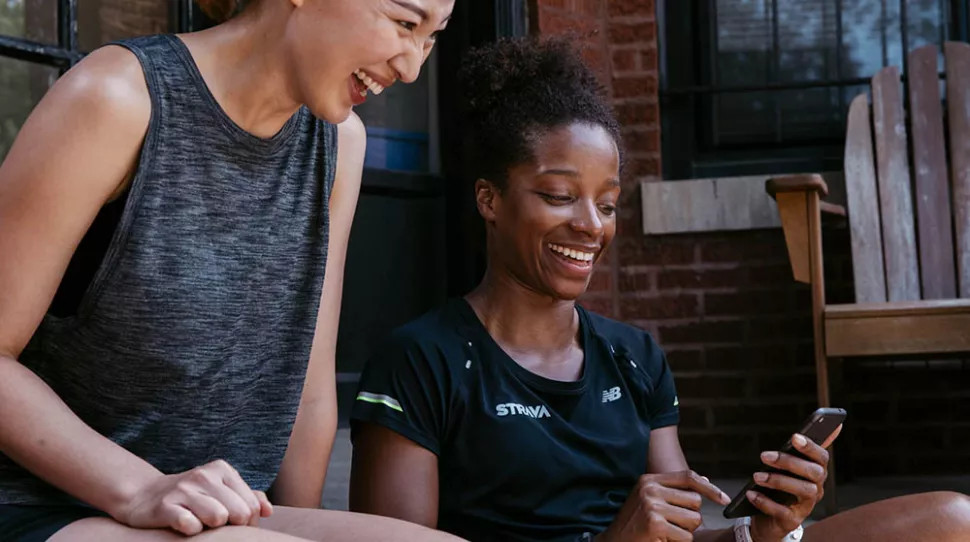
Socials
- You and your friends can give each other kudos when looking at each others activities in the Facebook style newsfeed
- View not only your friends' activity but also plenty of famous runners
- Ability to join groups with friends and family to set challenges
Although primarily used for cycling and running, you can log many many different sports from rollerblading to skiing, and view your training timeline or a feed of workouts from all the athletes you follow. A lot of famous athletes are on Strava so this is a major excitement for fan boys and girls. You can create clubs for your friends to join and log mileage together, and join challenges from Strava and other brands that give you a discount coupon or similar incentive for completing them. You can give other athletes kudos (a thumbs up), comment on their efforts, and compete with them or yourself for the fastest time over various ‘segments’ – pre-decided sections of path or road.
You can end up spending quite a bit of time scrolling through all your friends and athletes you follow's activities if you're not careful. If you're feeling good about your own training, this can perk you up. Alternatively, if it seems like everyone else is making more progress than you, it can feel akin to doom scrolling. Plus, while a little competitiveness is good, Strava can make you feel like you want to beat everyone's segment times, making you run faster than might be optimum for your own training.
Stava subscription premium option
- Premium Strava subscription option is $11.99/£8.99 per month
- It provides access to segment leaderboards and advanced training features
- You can create your own routes and download offline route maps
- It now includes 3D outdoor mapping from FATMAP
Many runners are totally satisfied with the free version of Strava for logging all their runs, cross training and workouts and accessing a small amount of post-run analysis. However upgrading to the premium Strava subscription option is $11.99/£8.99 per month (billed annually) and this gives you access to pretty much every juicy running stat you could ever hope to analyse including advanced heart rate and power data, segment leaderboards and your own past segment efforts to see how your performance changes over time.
You can also plan routes, create segments, set goals, access training plans and see your personal training log and dashboard at a glance, with myriad advanced training functions. It’s worth noting that the route creator shows roads and paths but it’s not as detailed as the UK's Ordnance Survey mapping, so it’s more useful for road than trail runners. You can also access personal ‘Heatmaps’ (maps of where you’ve run showing via colours where you’ve run more often) and make use of discounts from Strava’s partners.
It was also recently announced that Strava have partnered with FATMAP, the excellent 3D outdoor mapping platform. With its Strava compatibility, FATMAP offers routing and terrain tools that help to make the wisest decision when planning routes.
Runkeeper
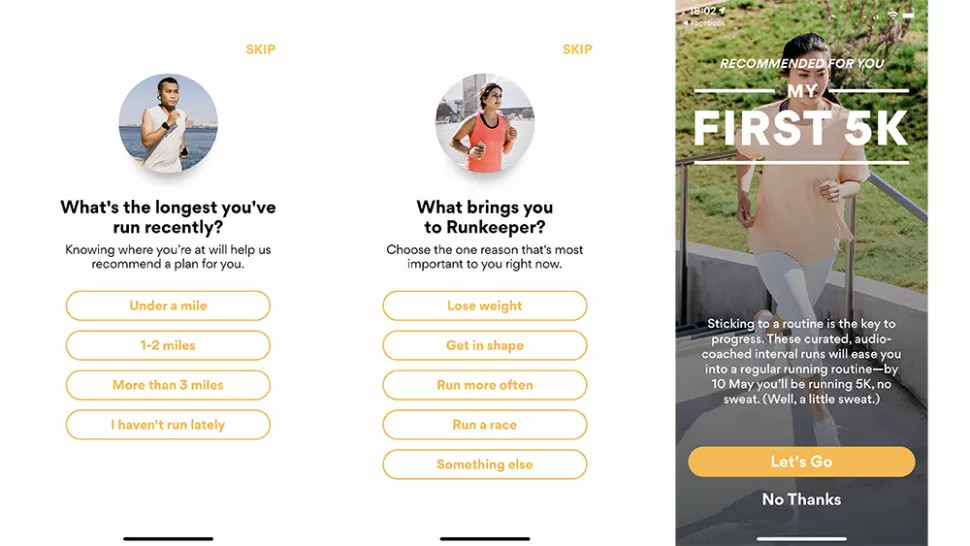
Runkeeper
- Runkeeper is more focussed on coaching and training
- It incorporates Asics Studio with 10 personal trainers
- Live tracking safety feature allows close contacts to check where you are
Runkeeper (and its premium version Runkeeper Go) is more focused on coaching and training you towards your running goals than just a training log with a huge dataset to analyse like Strava. This makes it much more suited to beginner and intermediate runners looking for guidance and training help without going so far as hiring a coach or personal trainer.
On downloading the Runkeeper app it asks you a series of questions to find out your goals, from 5k or 10k to weight loss. Cleverly, it asks you about your previous running experience and then steers you towards a challenge or training plan accordingly. Once you’ve logged a few runs you can see all your stats stored on there, including total milage, average pace and distance. You also get badges for doing certain mileages like 5k, 10k, half marathon and marathon, which is great for motivation.
The Runkeeper partnership with Asics brings excellent coaching and training advice, including tips on form and cadence which is great for beginner and expert runners alike. Runkeeper incorporates Asics Studio which has 10 personal trainers giving audio-guided workouts from strength and cardio to treadmill and indoor running which is fantastic for motivation and doing more than just running. There’s also a live tracking feature for safety that will send a text with a link to the tracking webpage to up to five contacts.

Runkeeper Go premium overview
- Premium unlocks a huge library of training plans and audio workouts
- Deeper insights into performance are also available
While there is access to some of these guided runs and basic training plans on the free version of the Runkeeper, the premium Go option is the place to unlock a huuuuuge library of training plans and audio workouts, plus real-time workout adjustments if you miss a day and weather updates so you can wear the right kit. There are also deeper insights into pace and distance, you can compare past runs and use this feature to shed light on what enhances or harms your performance.
Socials
- Runkeeper's less like a Facebook for running
- Less distractions from looking at your peers running efforts
There is a social side to Runkeeper but it’s not nearly in the same league as Strava – we’ve never heard anyone saying 'If it’s not on Runkeeper it didn’t happen', for example. However, if you’re looking for more motivation and training advice to achieve your running goals, and less distraction from endless scrolling of other people’s impressive running activities and photos, Runkeeper is the better app for you.
The verdict
- Runkeeper is great for beginners looking for workouts and coaching advice
- For analyzing your results, Strava is the winner
- Strava also appeals to the competitive runner thanks to segements
If you’re a beginner to intermediate runner looking for coaching advice, workouts and a straightforward way to log your runs and exercise sessions, look no further than Runkeeper. If you’re any level of runner and wish to log and analyze your own workouts with no training advice and are motivated by the competitive segments and social side with photos and comments, Strava is the one for you. Why not try both and see which one you get on with best?
The co-founder and former editor of Trail Running magazine, Claire now runs the YouTube channel Wild Ginger Running, creating films about trail- and ultra-running advice, inspiration, races and gear reviews. An award-winning journalist, writing for outdoor and adventure sports magazines and websites, Claire's first book, The Ultimate Trail Running Handbook (5k to 50k), is out now. Her second, The Ultimate Ultra Running Handbook (50k to 100 miles), is out Autumn 2024. Claire also speaks and presents at events and races.
